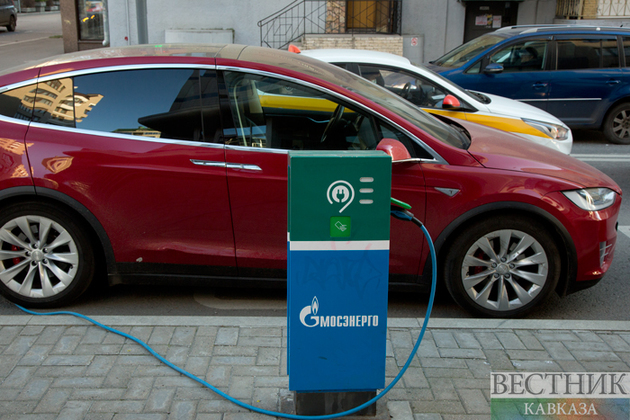Soaring demand for electric vehicles coupled with global battery supply chain issues caused production problems for carmakers last year. But the disruptions seen in 2021 are unlikely to become the new normal for three reasons, writes Julia Poliscanova, a senior director for vehicles and e-mobility at Transport & Environment, a clean mobility NGO, writes for Euractiv.
Electric cars, alongside walking, cycling, and mass transit, are the world’s best technology to clean up transport. They are at least three times better than combustion vehicles, even when battery manufacturing is included. But if sales of electric cars continue to soar, will there be enough nickel, lithium and other metals available to make their batteries? The geological availability of metals such as lithium or nickel is not a problem. But current short-term imbalances in supply and demand are unavoidable as supply chains deal with surging consumer interest in electric vehicles (EVs), disruptions caused by the pandemic and high energy prices. But even as metal spot prices rise, 2021 should not be seen as the new normal. There are three reasons to believe the problem need not become structural.
Market forces
First, the substitution of scarce metals is a key trend that we’ve started seeing in the electric car market. The concerns over cobalt and nickel supply are pushing automakers to switch to alternative technologies. Lithium iron phosphate (LFP) batteries (sometimes with the addition of manganese), previously seen in Chinese brands and buses, are replacing the nickel and cobalt-rich batteries fast. Volkswagen, Tesla, Hyundai and Stellantis all plan to shift to LFP for their affordable models. On the other hand, innovative solid-state chemistries might be an answer for premium vehicles and are expected to enter niche applications by mid-decade. Going for more efficient and appropriately-sized electric cars will help too.
Second, increasing metal prices send a firm market signal to mining companies to ramp up investments in new supply. Many new projects, including a new nickel mine in Tanzania, a lithium one in Argentina, and a few greener direct lithium extraction plants, including geothermal lithium in Europe, plan to start production from 2025 onwards.
On top of being economically sound, these will have to meet ever-stricter environmental and social rules globally to be viable for the green transition. The EU, China and California have new laws in the pipeline governing the conditions under which batteries are made, while carmakers will also be mindful of their ESG ratings on this score. Using the cleanest available technology in mining operations and respecting local communities will be best to get permits on schedule.
Mined ores need to be processed into high purity chemicals to go into battery cells, for example, nickel sulfates or lithium carbonate. But unlike mines, which can take five to seven years to come on stream, the chemical refineries will ramp up production in a couple of years. So, it is not surprising that the chemicals carmakers need in 2025 are not yet there. As long as expansion is being announced, such as the three plans for nickel refining in Finland, panic is not justified. Additional capacity from the growing number of recycling plants in Europe and globally will also alleviate some shortages.
Walk the EV talk
Finally, to avoid production curtailment similar to that caused by the chip crisis, carmakers should walk the EV talk. This means securing long-term supplies of battery metals today if they are serious about their electric car pledges for 2030. This means smart procurement policies and strategic partnerships prioritising long-term contracts over-relying on volatile spot markets.
Procuring raw materials directly also gives the car industry leverage over the environmental and human rights conditions under which they are extracted. Tesla is doing so in New Caledonia by working directly with the mine on issues like tailings management. Volkswagen is also moving to secure materials in Europe. Any carmaker that is not working hard to secure future supply chains is not serious and will be caught out. Battery shortages dampening the electric car outlook is not inevitable. A mix of market signals, innovation and doing one’s homework on procurement will enable the auto industry to switch most of their engine sales to electric this decade.
Preparing for the worst today will enable the auto industry to reap the benefits of zero-emissions vehicles faster than many think.






